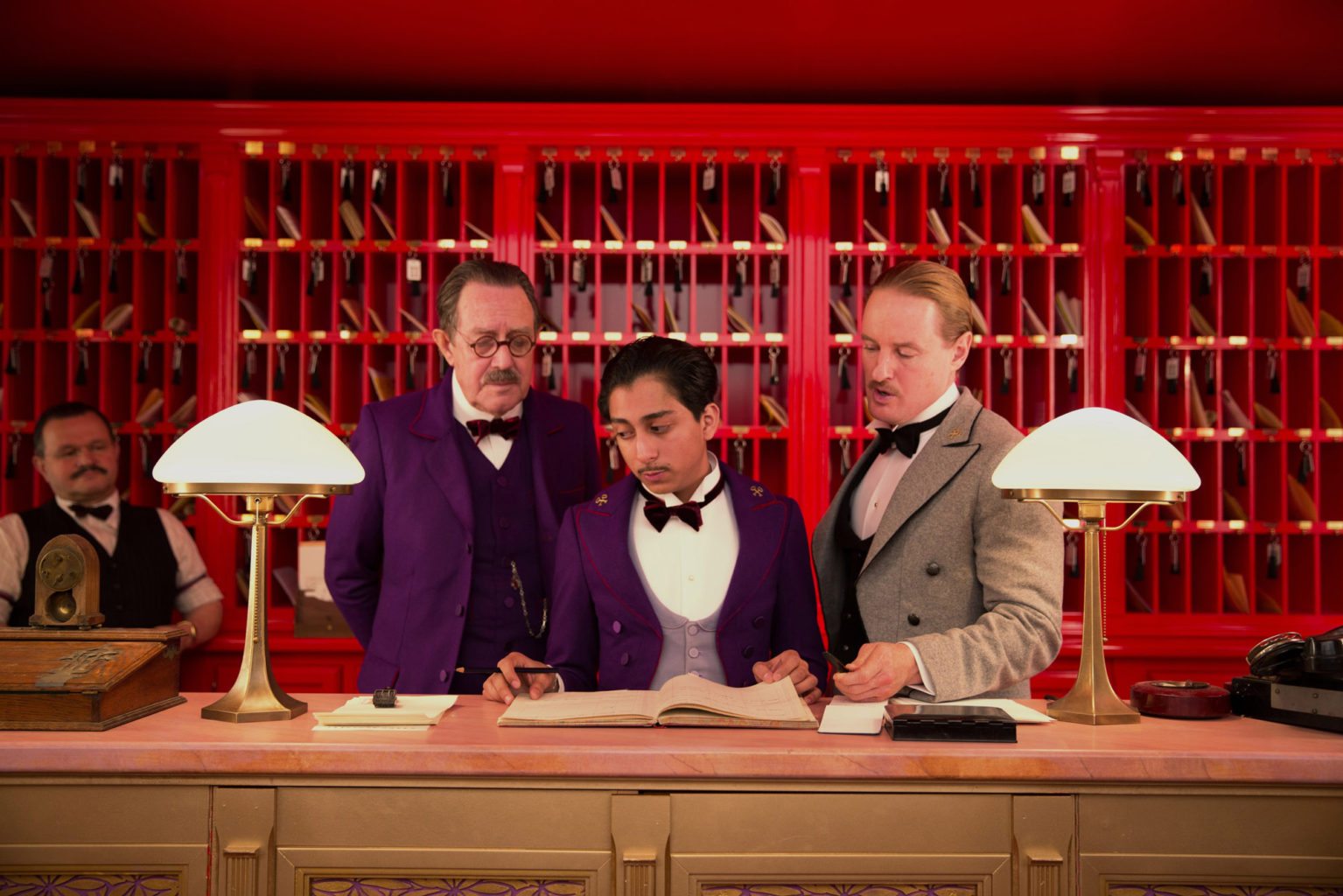The Grand Budapest Hotel
Director: Wes Anderson
Cast: Ralph Fiennes, Tony Revolori, Saoirse Ronan
Length: 99 minutes
Country: Germany/UK
Of all the film auteurs to spring up in the past fifteen years or so, Wes Anderson is by far the most recognisable, to such an extent that even the most casual film watcher can identify with his style. Anderson doesn’t just make films, he creates intricately detailed worlds that linger long in the imagination after the curtains go down. The Grand Budapest Hotel, which won the Silver Bear Award at the Berlin Film Festival, is the culmination of his meticulously crafted aesthetic. All the usual trademarks are on show – deadpan delivery, head-on framing, sideways camera panning, use of bold fonts, and deliberately stylised set-pieces – reaffirming Anderson as one of the most unique voices working in cinema today.
The Grand Budapest Hotel’s main theme is nostalgia, and this is reflected through the framing device, which starts in 1985 at a dead writers grave, then zips back to the late 60s when the writer visited the fading hotel, and is relayed the story of its glory days in the 30s by the hotel’s owner, when he used to work as a lobby boy. This multilayered use of narrative gives the film a rather literary quality, and I was not surprised to find out it was inspired by the writings of Stefan Zweig. Whilst watching, I was reminded of Thomas Mann’s excellent novel The Magic Mountain, set in a sanatorium in the Swiss mountains, which also illuminated the paradoxical spirit of Europe before war, harking back towards the past, but unstoppably destined towards catastrophe. Taking on themes of this size is a first for Anderson, and beneath his delightful confection there is heart at its centre. Unlike Mann’s huge novel however, Budapest Hotel never lags in pace, swiftly moving between its several plot lines.
It is wonderful to look at, but it lacks the emotional punch of his greater works.
The star of the show is Ralph Fiennes, in his funniest role yet, as Gustave H. the hotel’s concierge. Many of the best scenes involve him giving hyper-specific instructions at rapid-fire pace, totally immersing us in his world of propriety and decorum. He takes lobby boy Zero Moustafah under his wing, played by newcomer Tony Revolori, in a role channeling the earnestness of Max Fischer in Rushmore. One of Gustave’s favourite guests, who he attends to “personally”, is found dead at her home, and he is fingered as the main culprit. The rest of the movie follows his various exploits in order to prove his innocence to protect the hotel, which acts as a metaphor as the last refuge of decency before Europe gets ravaged by war. The rest of the cast is unbelievably star-studded, and includes Anderson regulars Bill Murray, Edward Norton, Adrien Brody, Jason Schwartzman, Willem Dafoe and Jeff Goldblum, Bob Balaban as well as Lea Seydoux, Tilda Swinton, Tom Wilkinson, Jude Law, Mathieu Amalric and Harvey Keitel.
However, with so much going on, and with such a wealth of talent involved, the screenplay doesn’t do enough to create enough truly sympathetic characters. Apart from Fiennes in the lead role, and Revolori in support, the rest of the cast feel more like caricatures in service of the plot than fully rounded people. In addition, with such a great and innovative production design, with a beautiful colour palette of bright pinks and deep reds, I wished the film spent more time simply hanging out with its quirky characters than whisking them off on absurd adventures all the time. For example, Zero’s love interest Agatha, played by Saoirse Ronan, isn’t in enough scenes to give their relationship the romantic weight it deserves. At one hundred and six minutes, this film feels too short, giving it a feeling of slightness. Like The Lego Movie, also released this month, Anderson piles several WTF moments upon each other more for comic effect than for any lasting meaning. Unlike The Lego Movie they aren’t funny enough to be justifiable.
In the canon of Anderson’s works this is more in the Life Aquatic and Darjeeling Limited category than his bonafide masterpieces Rushmore, Moonrise Kingdom and The Royal Tenenbaums. It is wonderful to look at, but it lacks the emotional punch of his greater works. However, in this rather spare March season, a good Wes Anderson film is always worth a watch.

Comments (2)
Magnificent website. Plenty of useful information here.
I’m sending it to several pals ans additionally sharing in delicious.
And certainly, thank you for your sweat!
Why people still use to read news papers when in this technological globe all is available on web?